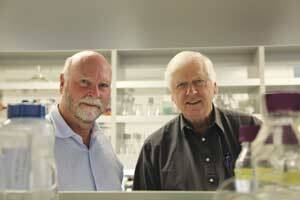The successful development of a synthetic cell can have many practical applications, but the technology must be regulated, said the Vatican newspaper, L’Osservatore Romano, commenting on a recent and long-sought scientific breakthrough in the United States that has already provoked a vigorous debate among bioethicists. After almost 15 years of work and the expenditure of $40 million, researchers at the J. Craig Venter Institute, a not-for-profit genomic research organization, announced on May 20 that they had successfully constructed the first self-replicating, synthetic bacterial cell. The synthetic cell is proof of the principle that genomes can be designed on a computer, chemically made in a laboratory and transplanted into a recipient cell to produce a new self-replicating cell controlled only by the synthetic genome.
The development was a source of alarm to some. Bishop Domenico Mogavero of Mazara del Vallo, chairman of the Italian bishops’ legal affairs committee, said that the new form of life “is a potential time bomb, a dangerous double-edged sword for which it is impossible to imagine the consequences.” Bishop Mogavero said, “Pretending to be God and parroting his power of creation is an enormous risk that can plunge men into barbarity.”
The breakthrough is significant because scientists believe such synthetic cells could lead to the development of many important applications and products, including biofuels and vaccines and new pharmaceutical, water purification and food products. J. Craig Venter, the institute’s founder and president, said, “We have been consumed by this research, but we have also been equally focused on addressing the societal implications of what we believe will be one of the most powerful technologies and industrial drivers for societal good.
“Synthetic biology certainly raises deep philosophical and moral questions about the human relationship to nature,” said Gregory Kaebnick, a Hastings Center scholar managing a project that is reviewing the ethical implications of the emerging field. “If by ‘nature’ we mean the world around us, more or less as we found it, we may well decide that synthetic biology does not really change the human relationship to nature—and may even help us preserve what is left of it,” he said.
Thomas H. Murray, president of the Hastings Center and the project’s principal investigator, said, “We have come up against similar problems in other domains—most notably, in work on nanotechnology and gene transfer technology—but synthetic biology poses them especially sharply and pressingly.”
Venter’s creation has produced “an interesting result,” which could have many applications, but the new technology “must have rules just like everything that lies at the heart of life,” L’Osservatore Romano said on May 23. “Genetic engineering can be used for good,” particularly in treating genetic diseases, it said. But caution must be exercised, as “many people in fact are concerned about the possible future developments of genetically modified organisms.” L’Osservatore Romano emphasized that Venter’s scientists had not created life, but had “substituted one of its engines.”
Cardinal Angelo Bagnasco, president of the Italian bishops’ conference, said that the development of the first synthetic cell was a “further sign of human intelligence, which is a great gift of God.” However, with intelligence comes responsibility, he said. Therefore, any intellectual or scientific advancement “must always measure up to an ethical standard.”








